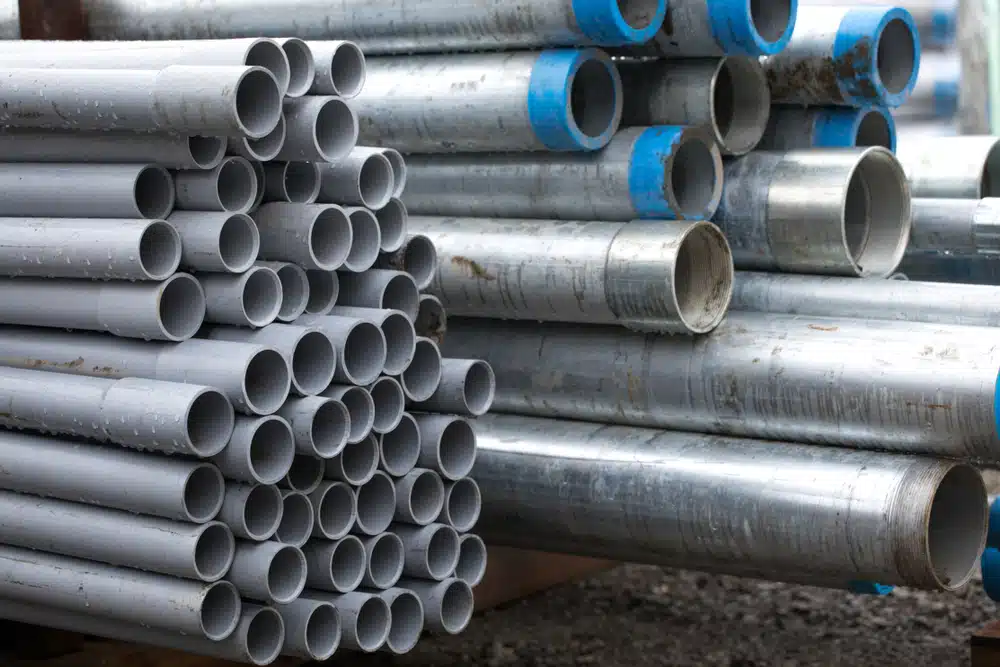At home, various pipes are utilized for water supply, drainage and sewer services – it is therefore vitally important that homeowners select appropriate pipes in Northeast Florida to avoid costly plumbing issues.
Faulty plumbing systems can lead to flooding, damaged floors and walls as well as costly repairs. Maintaining them on an ongoing basis and knowing when it is necessary to contact professional help can prevent major plumbing problems from emerging.
PVC Pipe
PVC pipes are one of the most frequently utilized modern pipe materials. Their combination of cost, strength, versatility, and durability allows it to serve an array of applications effectively.
PVC pipes also conserve water resources and protect the environment, while having a lower break rate than metal ones – leading to reduced pump costs and no water leakage issues.
These materials can withstand various chemicals and temperatures while also requiring minimal maintenance or installation costs, thus lowering overall expenses.
PVC pipes offer significant environmental advantages that go far beyond their performance and cost advantages. Their production uses less natural resources than older technology pipe materials, and once their service life ends they can easily be recycled for reuse or disposal. Copper may have better reputation when mining for raw materials but once extracted and extracted for disposal they don’t outshone PVC as far as environmental friendliness goes.
Copper Pipe
Copper pipes are highly resilient and can withstand water pressure of up to 1000 PSI without succumbing to corrosion, lasting an estimated 50-70 years before needing replacing. Copper is also superior at transmitting heat than other pipe materials and thus makes an excellent choice for radiant heating systems.
Type M copper piping is more affordable and thinner than its K and L counterparts, yet can withstand high water pressures. It’s often used for repairs and replacements of interior branch lines in residential properties. Flexible and rigid options are also available with this pipe type.
Copper may be more costly than other piping materials, but its long lifespan and lower maintenance costs make it worth investing in for your home. When installing, repairing, or repiping with copper pipes it is wise to hire a professional with experience working with copper so the job can be completed correctly and safely. Be mindful when using household cleaners near copper pipes as some can cause pitting or corrosion over time.
PEX Pipe
As a plumbing material, PEX offers several advantages that make it suitable for many projects. First and foremost, its price makes it more accessible than copper pipes, while its ability to withstand freezing temperatures prevents other pipes from freezing and burst causing leaks or costly water damage in homes.
PEX pipes offer many advantages over other piping materials due to their greater flexibility, including being easily bendable around corners without extra fittings, making installation faster and simpler. Plus, PEX is less likely to break or crack from work-site mishaps – where just a drop or misplacement of weight on a worksite could lead to structural failure requiring costly repairs in copper or CPVC pipes if left alone long enough.
PEX pipe does not succumb to mineral buildup like other piping materials and produces less turbulence in its flow, making maintenance simpler.
Metal Pipe
Metal pipes are more long-term durable and cost-effective than plastic ones, making them the go-to choice in many construction projects. Copper and stainless steel pipes are popular choices since these materials have superior corrosion-resistance, while high temperatures won’t affect them either. Stainless steel also withstands higher temperatures better and tends to last longer.
Copper pipes are commonly used in homes as water lines. Their sturdy construction makes them resistant to corrosion and leakage, and makes it safe for transporting drinking water without transmitting bacteria or transmitting pathogens. Furthermore, copper is easy to work with and solder joints can easily be soldered together for soldered joints.
Though not the ideal for plumbing purposes, type K copper pipe can make for excellent drain, waste and vent (DWV) systems in homes. Thicker than types M or L pipes and with greater resistance to harsh conditions than either one makes this choice perfect for underground installations – plus, it’s often less expensive than competing products!







More Stories
Essential Plumbing Fixes Every Homeowner Should Know
Common Plumbing Problems and How to Solve Them Yourself
How to Find Affordable Plumbing Services